SUMMARY
This is AI generated summarization, which may have errors. For context, always refer to the full article.
![[ANALYSIS] The weaponization of ‘trust’](https://www.rappler.com/tachyon/2022/06/weaponization-trust-june-16-2022.jpg)
On Wednesday, June 15, the Reuters Institute for the Study of Journalism (RISJ) released its most recent (2022) Digital News Report (DNR). As in the past, this sparked a feeding frenzy among social media propagandists whose job descriptions appear to include pouncing on every sliver of excuse to attack and vilify Rappler and independent media.
This calls to mind a tweet that Rasmus Nielsen, director of the Oxford-based RISJ, posted early this year in reaction to yet another meme that was being circulated on social media to make fun of Rappler.
Nielsen tweeted then: “Rappler does courageous, important journalism in a polarized society, has wide reach. Sorry to see our research abused as part of attacks on it. Standing up for journalism and what one believes in can divide people (Apple Daily, The Wire, etc). Can still be the right thing to do.”
The meme that Nielsen was reacting to at the time was based on a graph in the 2021 Digital News Report (DNR), a study that is regularly commissioned by the RISJ which Nielsen heads.
But I find Nielsen’s response insufficient.
In the first place, the RISJ should have anticipated the feeding frenzy that their new annual report would trigger, and they should have taken appropriate steps to minimize the risk of it being abused or taken out of context.
I ask Nielsen and RISJ, since it is an institute that studies journalism, to reexamine its goals for generating this report, the methodology it used, and, more importantly, the questions it is asking.
For one, the fact that trust in news brands declined even as overall trust in news rose indicates a disconnect somewhere, prompting more questions. Even the Manila Bulletin, which thanked its followers for the honor of being the “most trusted broadsheet,” also suffered a dip in trust ratings from 69% in 2021 to 66% in 2022. Meanwhile, lack of trust for the Manila Bulletin also increased from 8% in 2021 to 10% in 2022.
What do these numbers mean? What are the foundations of this lack of trust? Does it have anything to do with accuracy or ethical practices? Or is it something else?
If there are brands that have earned public trust, who are they? Why are they so trusted? What type of news and information are they churning out? And in what context? These questions, among others, would have been helpful in enriching the study.
‘Tricky trade offs’
Responding to my questions about the methodology and the questions asked in the survey, Nielsen said in a Twitter direct message that, “One of the central limitations of survey methodology is the length and granularity of the questionnaire. Always tricky trade offs.”
He adds, “In terms of trust, to keep the questionnaire at a manageable length, we ‘only’ ask brand-level trust questions about 15 brands.” This, he said, is also why they are very explicit that, “Only the above brands were included in the survey so should not be treated as a list of the most trusted brands.”
This is an understandable limitation and is very similar to what local survey companies have to contend with when conducting surveys on performance satisfaction ratings of government officials. But this is why I raised the issue of re-examining the methodology. There are other ways to supplement the gaps in survey methodology. These include big data analysis, for example.
The country (Philippines) overview of the 2022 Digital News Report does mention that “independent outlets respected for their reporting on those in positions of power are often actively distrusted by supporters of the politicians in question.” The country overview also cites attacks against Rappler and other media groups.
But the report stops short of drawing a causal relationship between online disinformation and trust. It also fails to take into account the extent of the rise of the massive alternative online information ecosystem, where social media influencers who are unburdened by old-fashioned notions of accuracy, ethics, and financial transparency reign supreme.
And there lies the big problem.
Big miss
This is not to say that the 2022 DNR did not talk about the rise of influencers. It does, in other markets like the US. But it miserably failed to cite this in the context of the Philippines, the acknowledged “canary in the coal mine,” where new information operation techniques are often tested before they are shipped to more mature democracies.
This is a big fail, and a fatal error, because this alternative information ecosystem played a big role, among others, in the victory of the son of the dictator, who effectively used this as his reputation laundering apparatus.
There are enough leads to follow. Two of the news organizations that landed in the top 5 in terms of online reach (ABS-CBN and Rappler) are in the bottom rung in terms of trust. Other than having a significant enough reach, both organizations have incurred the ire and the vile of the outgoing Duterte administration. Both have been the subject of a massive flood of disinformation in the six years that strongman Rodrigo Duterte has been in power.
Trust in ABS-CBN, previously the country’s top broadcast media organization, has been steadily going down (from 61% in 2020 to 57% in 2021 to 52% in 2022), as the network continues to fight to regain the franchise it lost at the height of the pandemic-induced lockdowns.
Trust in Rappler grew slightly from 45% in 2021 to 46% in 2022. But distrust grew at a faster pace: from 29% to 32%. The online battery of Rappler has not stopped; it reached its peak, in fact, during the campaign for the May 2022 presidential elections, when we exposed – in all story forms – the lies that were being peddled by candidates.
(Ironically, Rappler is one of three news organizations in the DNR list whose trust ratings did not dip in 2022. The other two are radio stations DZBB and Teleradyo.)
In one of our reports, “Patient Zero: A study on the Philippine Information Ecosystem,” we talked about how the government and politicians are among the gainers in the digital space. In some cases, they have edged out mainstream news organizations and media as the trusted sources of information.
We also tackled the meta-narratives that have been seeded against mainstream media, causing audiences to follow hyper-partisan social media influencers who are perceived as “alternative information sources.” Persistent attacks included claims that the mainstream media is biased, bayaran (paid hacks), “hiding the truth,” and are selective in their reporting of accomplishments of the current administration as well as of the previous Marcos regime.
In her thought piece, “Scaffolding our notions of trust,” De La Salle University professor Cheryl Soriano pointed out that these new influencers are “embedding themselves into the new status quo while effectively evading questions of responsibility, ethics, financial transparency, and bias by loudly asking the same questions from the mainstream media that they are demonizing.”
So why is it important – imperative – for an institution like the RISJ to contextualize its reports this way? Because by not placing its scoreboard in the proper context, this yearly exercise becomes nothing more than a popularity contest. It can be weaponized against any news organization who dares speak truth to power. The best proof of that is that Nielsen had to respond to that meme. – Rappler.com
This piece was originally published as a Judgment Call newsletter for our Rappler+ members.
Add a comment
How does this make you feel?

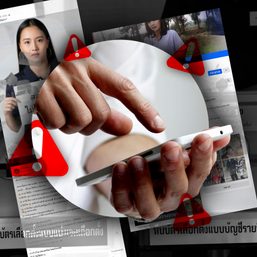

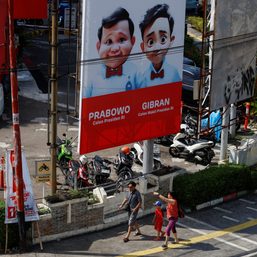
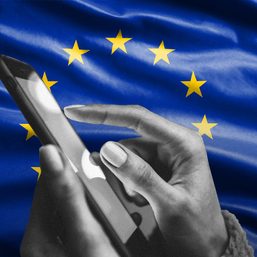
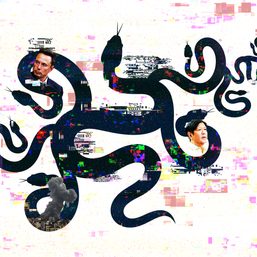
![[DECODED] The Philippines and Brazil have a lot in common. Online toxicity is one.](https://www.rappler.com/tachyon/2024/07/misogyny-tech-carousel-revised-decoded-july-2024.jpg?resize=257%2C257&crop_strategy=attention)



![[Rappler’s Best] US does propaganda? Of course.](https://www.rappler.com/tachyon/2024/06/US-does-propaganda-Of-course-june-17-2024.jpg?resize=257%2C257&crop=236px%2C0px%2C720px%2C720px)
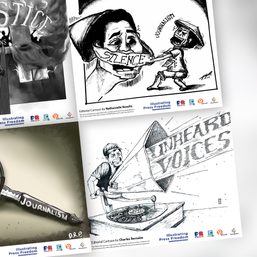
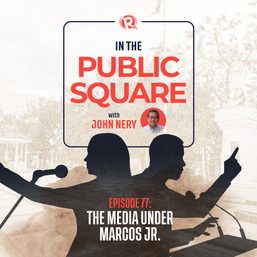
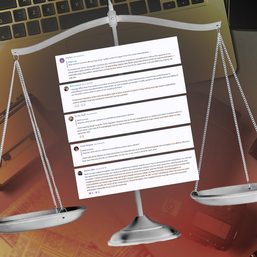
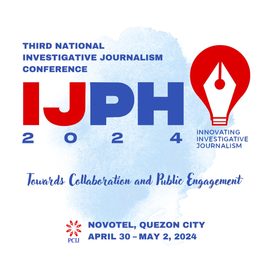
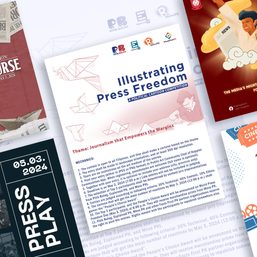








![[Just Saying] Ted Failon, press freedom, and the Supreme Court](https://www.rappler.com/tachyon/2024/07/20240709-ted-failon-press-freedom-supreme-court.jpg?resize=257%2C257&crop=296px%2C0px%2C720px%2C720px)
There are no comments yet. Add your comment to start the conversation.